We take 'Partner' Seriously
Which means we take your time seriously. We will reach out shortly after you submit this form.
The Best Content Management System for Your Business: Choosing the Right CMS for You

Author: Brad Gronek
Published: September 23, 2022
When it comes to content management, one size does not fit all. Different CMS's address the needs of different customers. Some organizations are looking for a quick and simple site that is up and running today and intended to last only a short while, some are looking for a solid site which will help them rank in SEO for the next 2 - 3 years, others are looking for the last web CMS they'll ever need. After building web sites for the past 20 years using almost every technology and CMS in the industry for companies as small as the tiniest startup and as large as (literally) the largest enterprise, I would like to share my favorite content management systems and where each makes the most sense. Whether you are looking for the best content management system for enterprise, the best open source content management system or the best content management system for ecommerce, we hope you will find what you are looking for here.

What is a Content Management System?
A content management system (CMS) is a software application that helps users create, manage, and publish digital content. A CMS typically provides a user-friendly interface that makes it easy to add and edit content, as well as to format and structure it in a way that is both logical and visually appealing. In addition, a CMS often includes tools for managing users and permissions, so that only authorized users can make changes to the content. Content management systems differ in their ability to adapt and grow with your business, their ability to optimize content for various devices and their ability to effectively handle additional use cases such as integration and e-commerce.
In 2020, the concept fo the Digital Experience Platform (DXP) was introduced to address the complex needs of enterprises. A DXP is a comprehensive software solution that helps organizations deliver personalized and consistent customer experiences across all digital touchpoints. A DXP encompasses a wide range of capabilities, including content management, omnichannel delivery, customer data management, and analytics. By integrating these various functions into a single platform, a DXP can help organizations create a seamless digital customer journey that boosts engagement and conversions. In addition, a DXP can also provide the foundation for a headless content management system (CMS), which decouples the back-end CMS from the front-end presentation layer. This allows for greater flexibility and agility in how content is delivered to users.
What are the most popular content management systems?
In recent years, there has been a proliferation of content management systems (CMS) on the market. While each CMS has its own unique features and benefits, there are some that have become more popular than others. Naturally, the most popular CMS's are those which are best suited for smaller organizations and budgets; however, these systems might not be the best fit for more complex use cases.
Below is a chart from Wappalyzer indicating the top 10 most popular content management systems as a reference.
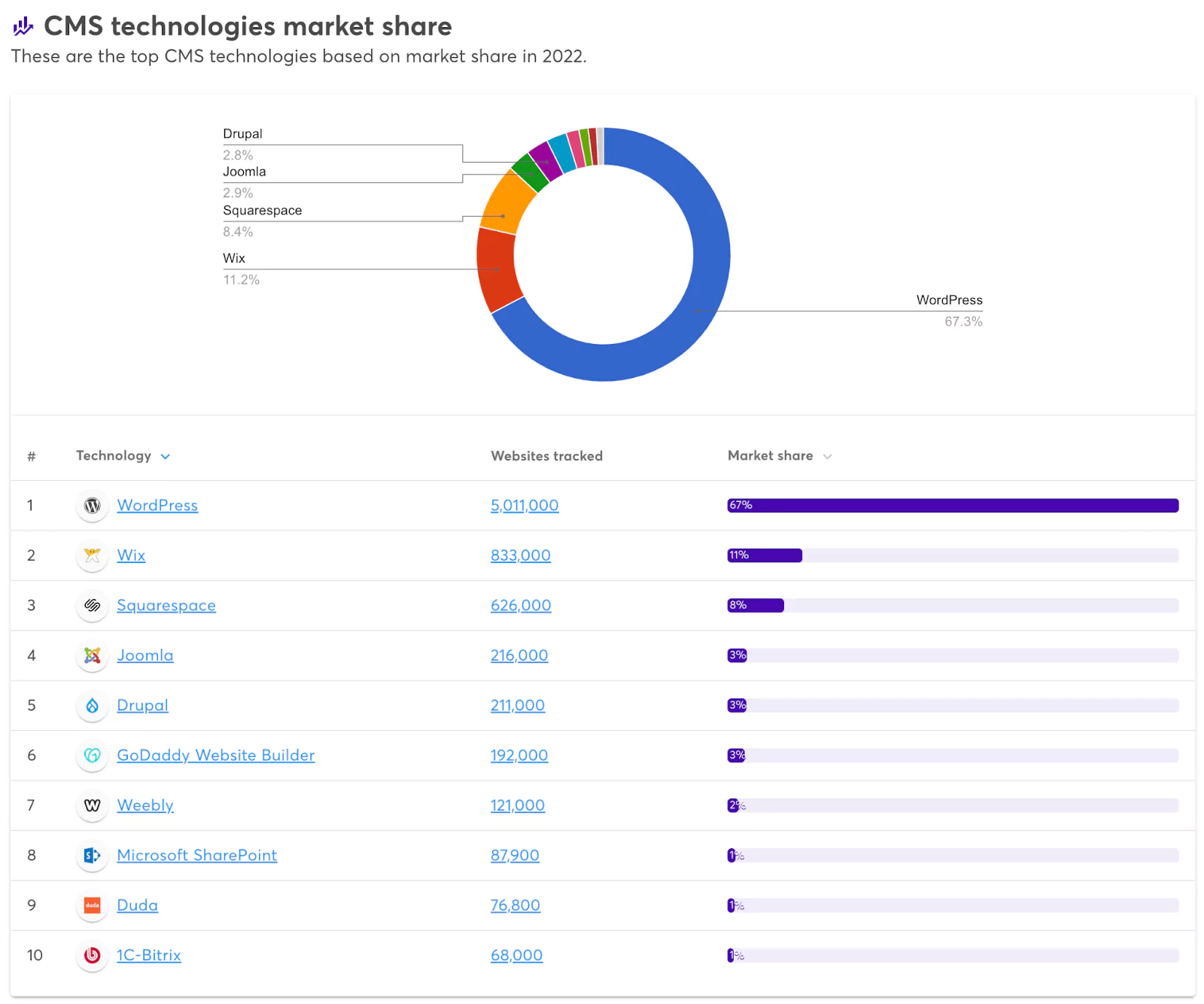
Gartner, an organization that ranks commercial enterprise systems for large organizations, also put out a ranking of the best CMS's until 2019 after which they turned their focus to more comprehensive Digital Experience Platforms (DXPs, discussed below). Note that here, 'Automatic' is actually Wordpress and 'Acquia' is actually Drupal as these are the commercial businesses behind these open source systems.
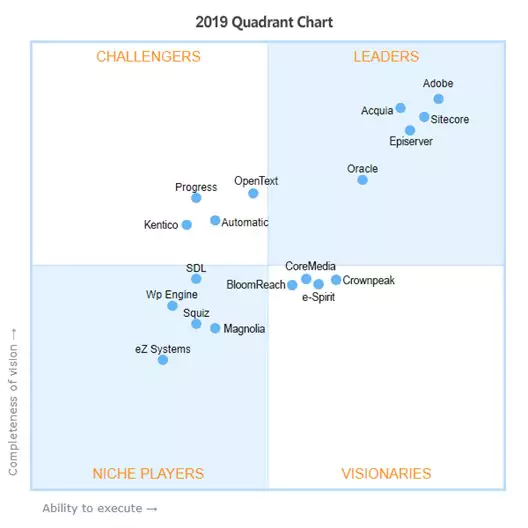
Now that you know what a CMS is and what the most popular CMS's are, here are our favorites based on your use case:
Wix: Best no-code web site builder when you are in a pinch.
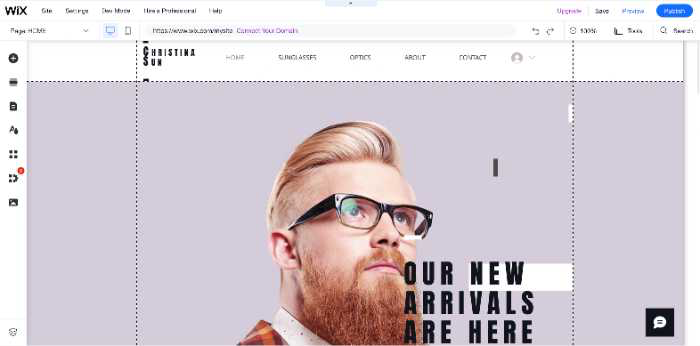
Key Characteristics:
- Licensing: Proprietary software as a service.
- Modules and extensions? 300 proprietary apps, some paid and some free.
- Hosting: Wix Only. Wix is a Software as a Service provider.
- Themes: 800 templates in the Wix marketplace.
Wix is a popular website builder that allows users to create custom websites without the need for coding knowledge. With Wix, users can choose from a menu of 800 templates and designs, or they can create their own unique website from scratch. Wix also offers a wide range of features, including SEO tools, and password-protected pages. In addition, Wix websites are mobile-friendly and can be easily shared on social media. Whether you're a small business owner, an artist, or just someone who wants to create a personal website, Wix is a great option.
Wix is a popular website builder that allows users to create custom websites without any coding. Although it is a great platform for beginners, there are some drawbacks that users should be aware of. One advantage of Wix is that it is very user-friendly and offers a wide range of features. Users can choose from a variety of templates, add their own photos and videos, and even create custom forms. However, one downside is that Wix websites can be less search engine friendly than other types of websites. This means that it can be harder for users to get their Wix website to show up in search results. Another disadvantage is that users are limited in terms of customization. While they can change the look of their website, they cannot make major changes to the underlying code. As a result, users who want complete control over their website may be better off using another platform.
In conclusion, Wix is great if you need to get a website up quickly; however, if you want to be in the driver's seat when it comes to search engine optimization (SEO) or customization and you want to truly own your site, keep reading.
Wordpress: Best Small Business CMS for simple sites.
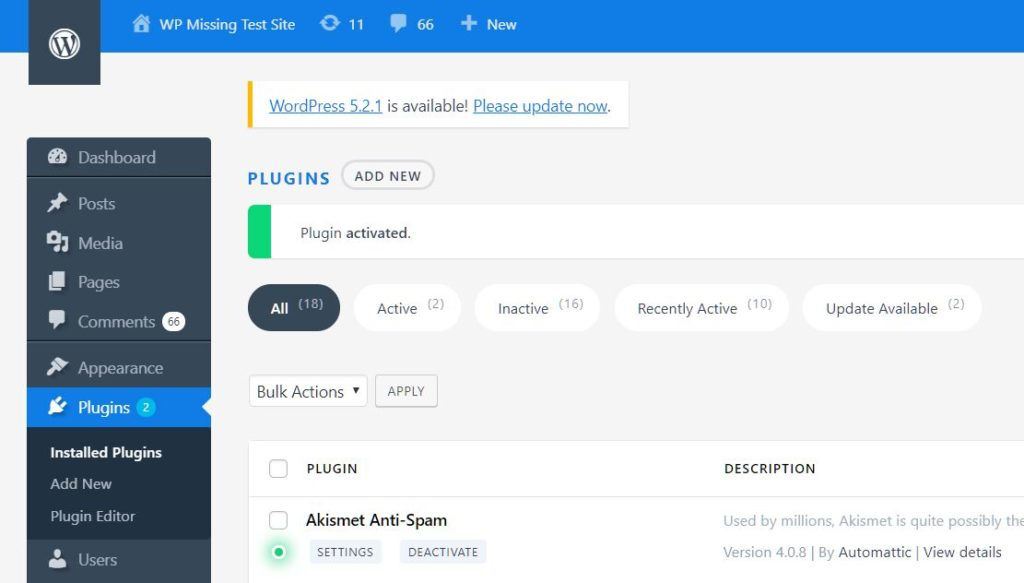
Key Characteristics:
- Licensing: Open Source / free.
- Themes: Wordpress sites being relatively simple, they are well suited for off the shelf themes of which there are many.
- Modules and extensions? 55,000 plugins from various vendors. Some are paid and others are free.
- Hosting: Wordpress is offerred as a cloud solution or can be self hosted.
Wordpress is a popular content management system (CMS) for small businesses. WordPress is free to use and open source, which means that anyone can contribute to the development of the platform. WordPress is used by millions of websites, including many large organizations such as The Guardian, Forbes, and The New York Times. WordPress sites are typically very simple, and they are well suited for off-the-shelf themes. In addition, WordPress offers a wide range of features, including a plugin architecture that allows users to extend the functionality of their site. WordPress also has a strong community support network.
One disadvantage of Wordpress is that it is not well suited for complex web applications. It is important to note that, when it was first built, Wordpress was designed to be a blogging tool and blogging and simple publishing is still the top use case for Wordpress. We have assisted a number of clients who have tried to rely on Wordpress for more complex web sites and ecommerce applications. We lovingly call these sites 'Frankenpress'. Limping along with a frankenpress site can quickly become very time consuming and expensive, particularly if you are faced with scaling issues, security issues and challenges with upgrades.
Another disadvantage of Wordpress is its plugin community. Because there is no managed, curated plugin community, plugins can be acquired from across the internet. Many of these plugins are paid, so you purchase them, install them and hope they play nicely with the plugins you are already using for your site. The more such plugins you have, the greater likelihood that they will not work well together requiring custom development to stitch them together.
In conclusion, Wordpress is fantastic if you have a simple site and don't forsee your site increasing in complexity over time. It has very powerful tools for search engine optimization and tons of themes that can kickstart your project. However, when it comes to complex use cases such as ecommerce, you might want to consider a different platform.
Drupal: The Swiss Army Knife of CMS's.
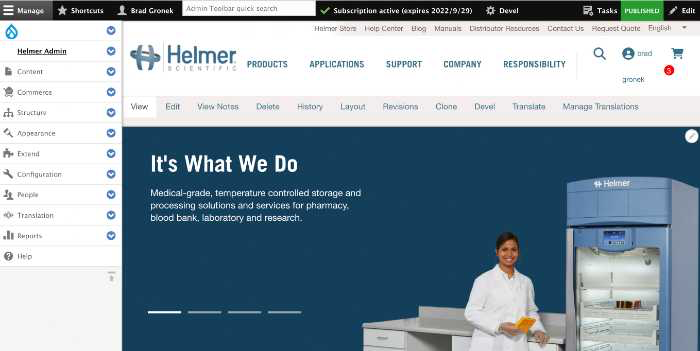
Key Characteristics:
- Licensing: Open Source / free.
- Themes: Some are available; however, most Drupal sites are custom designed.
- Modules and extensions? 40,000 open source modules managed from drupal.org (www.drupal.org).
- Hosting: Acquia provides hosting. Otherwise, Drupal is self hosted.
- Best open source enterprise content management system.
Drupal is the last CMS you will ever need. That's a bold statement. As I've said, I have built web sites for small businesses and Fortune 500 companies alike using most of the CMS's and programming languages in existence. When asked to work on a number of sites for one of the country's largest universities (ASU), I picked up Drupal and haven't looked back. Why? Drupal is the one CMS that truly does it all and, most importantly, is designed to grow with the complexity of your organization. In addition, Drupal is also the most secure of the CMS's making it the system of choice for over half of the governments and universities worldwide.
At the core of Drupal is its community of 40,000 developers who have built and maintain about 40,000 open source modules all curated in a single repository and scanned for security by a dedicated security team. If you need to build a module or extend Drupal, it is easy for developers to create modules to fit almost any need making Drupal the best component content management system. One of the most active areas of Drupal is a suite of ecommerce modules which provide a highly customizable foundation to build tailored enterprise ecommerce experiences making Drupal one of the best open source ecommerce platforms. This is great for business-to-business (B2B) ecommerce experiences.
If your small business is growing and you are starting to call yourself a mid-market company, I would highly recommend that you seriously consider Drupal.
It's not for everyone, though. Drupal does not play particularly well with out of the box themes because, by nature, it is an open canvas for your business. Drupal projects usually begin with traditional marketing strategy exercises during which you truly get to know your customer. From there, custom site maps, information architecture and designs are created around your customer to ensure that the final product truly connects your business with your customer. These efforts take time and thought for both you and your web team. The end result is a site which will serve you for years to come. We have clients whose Drupal sites have evolved through multiple mergers and acquisitions, new product lines, divestitures and design refreshes for 8 - 10 years.
In conclusion, Drupal is the swiss army knife of CMS's. In fact, Drupal alone fits most of the base requirements of an enterprise Digital Experience Platform (DXP) in a free, open source package. However, with great power comes great responsibility and Drupal sites are only as effective as the thought and planning that go into them.
Conclusion
So, which is the best Content Management System for your business? It depends on a number of factors including the size and complexity of your organization, your industry, your internal resources and your budget. If you need a new, temporary site up and running right away, you can't go wrong with Wix. If you are a small business with a simple site, Wordpress might be the best fit for you. If you are a growing mid-market company or a large enterprise or are looking to combine content and commerce, Drupal is the swiss army of content management systems. No matter which CMS you choose, the most important thing is to put some thought into your decision and make sure that the system you choose will grow with you as your business evolves.
